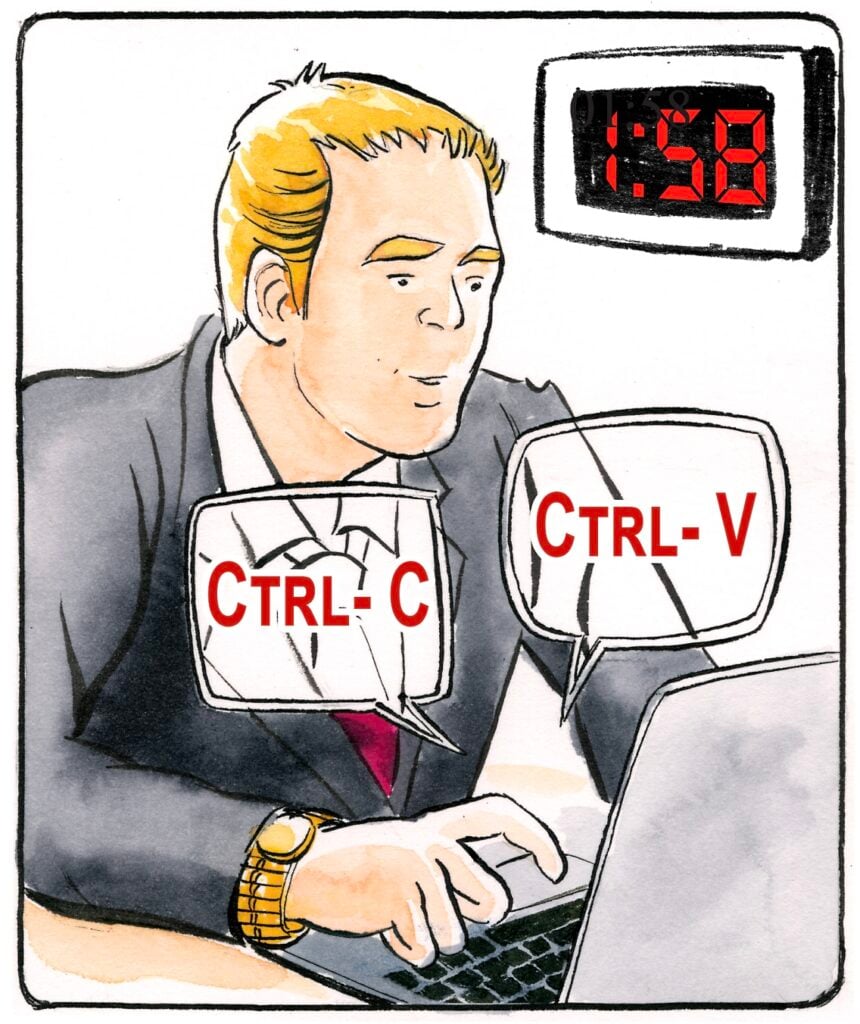When a Reddit poll asked law school applicants whether they should have to report the use of a consultant to admissions committees, the majority opinion was clear:
Using a consultant for your law school applications gives you a distinct and even outsize advantage.

We’re not here to debate the original question about the ethics of disclosure.
But we do want to take this as a jumping-off point for a discussion of just what kind of advantage admissions consulting offers (and what it can’t do).
Yes—perhaps obviously, we think that high-quality admissions consulting confers several clear advantages:
Hiring a consultant, then, is certainly advantageous. But it’s undeniably a substantial financial investment; is the advantage worth the cost? One way to clarify this point is to think about the price of law school itself.
As you’re doubtless aware, attending law school is expensive. How expensive?
Harvard Law estimates its standard 9-month student budget (including tuition and other costs) for 2025–26 at $121,250. The year before, it was $116,000, meaning the budget grew by about 4%.
Assuming the same inflation across the three years of the degree (and ignoring the fact that these figures are likely underestimates in any case), you can expect to pay around $380,000 for the full degree.
People applying to law school, obviously, are not just throwing away money on a whim. They believe—correctly—that a law degree, especially from a top program, is the key to a prestigious and lucrative career path.
If law school costs hundreds of thousands of dollars, the price tag on admissions consulting starts to seem like a drop in the bucket. Think of consulting as just one part of the big investment you’re making up front with the goal of opening up big opportunities in the future—and of course, the better the school you attend, the bigger the opportunities.

That is, an analogy can be drawn between the cost of consulting and that of law school itself. In both cases, you’re willing to make the investment because you believe the purchase—consulting to help you get into a better school, and the degree you get from that school—will pay for itself in the long run.
Another analogy:
As an aspiring attorney, you may have encountered some version of the saying, “The lawyer who represents himself has a fool for a client.” In other words, however certain you are of your case, however proud of your rhetorical abilities, someone else is going to represent you more effectively than you could represent yourself.
The same logic applies to the law school application process. However confident you are in your candidacy and your ability to argue for it, someone else can assess your profile, story, and goals far better than you can yourself. Especially when that someone is an expert who knows from experience exactly what law schools are looking for.
Beyond the basic principle that securing “outside representation” will boost your chances, let’s look at the specifics of the law school admissions consulting value proposition. What can you get out of consulting?
Hiring a coach can give you a decisive edge on the competition.
For top schools in some highly competitive fields, admissions consulting is the norm (e.g., MBA admissions consulting), with a large proportion of applicants hiring coaches. Admissions committees in such fields are expecting highly polished applications as a baseline.
In law school admissions, this isn’t really the case. Some of your competitors will work with coaches, others go it alone. What this means is that the kind of carefully thought-out, well-strategized application you can put together with the help of a consultant really stands out.
For an AdCom who’s spent the afternoon reading application after application with poorly formulated goals, cliché personal stories, little understanding of what makes this school unique—an application from someone who knows what they want and how this school will help them achieve it is something special.
Law school admissions consulting, of course, is not a golden ticket guaranteeing admission to your dream school. (If it were, we’d take that “unreasonable advantage” argument more seriously!)
If a consultant says they can guarantee you admission to any school, it doesn’t take much critical thinking to conclude that they’re selling you snake oil. Not everyone can be admitted, and the schools’ AdComs, not external consultants, decide who gets in.
The admissions process is never entirely predictable and always contains an element of luck. Applications that seem like a sure thing can be rejected; those that seem like a long shot can succeed. No coach can or should offer 100% certainty. Rather, a coach might turn you from a decent candidate into a great one—turn that 40% chance of admission into 80%.
Some applicants, too, simply have infinitesimal odds of admission to top law schools, something no amount of consulting can change.
A bad coach may tell you what you want to hear—sure, you’re a shoo-in for Harvard!—whereas a good one (much like a good lawyer) will offer a realistic assessment of your chances and work with you to get the best result you can.
Similarly, if a coach sells their service as one in which they do all the work and you can just sit back and relax, be highly skeptical.

The client–coach relationship is a collaborative one in which you work together to shape your story; you are not hiring a ghostwriter to throw together the application without your input. (An application with no input from its supposed author would hardly be convincing anyway.)
What a good coach offers is peace of mind: the assurance that your odds are as good as they could possibly be given your profile and the inherently capricious nature of the admissions process.
At the end of the day, not every applicant will—or should—hire a coach. Someone with an average profile who just wants to get into any law school, for example, is not a good fit for consulting.
Ambitious applicants targeting T14 or T20 programs, conversely, are likely to derive enormous value from a coach. Menlo Coaching’s law school admissions consultants specialize in working with these kinds of clients, helping them strategize and polish their applications to clarify their goals and give them the best possible chances of admission.
The law school application process will have an effect on your entire future career. It’s a high-stakes, one-shot opportunity for which you want to maximize your chances. Don’t be complacent; book a free consultation with Menlo Coaching today.